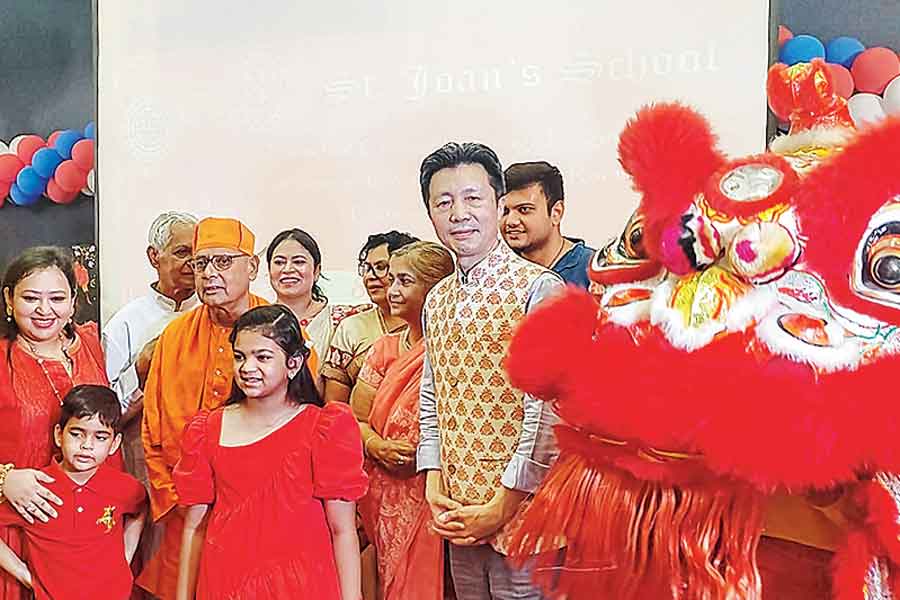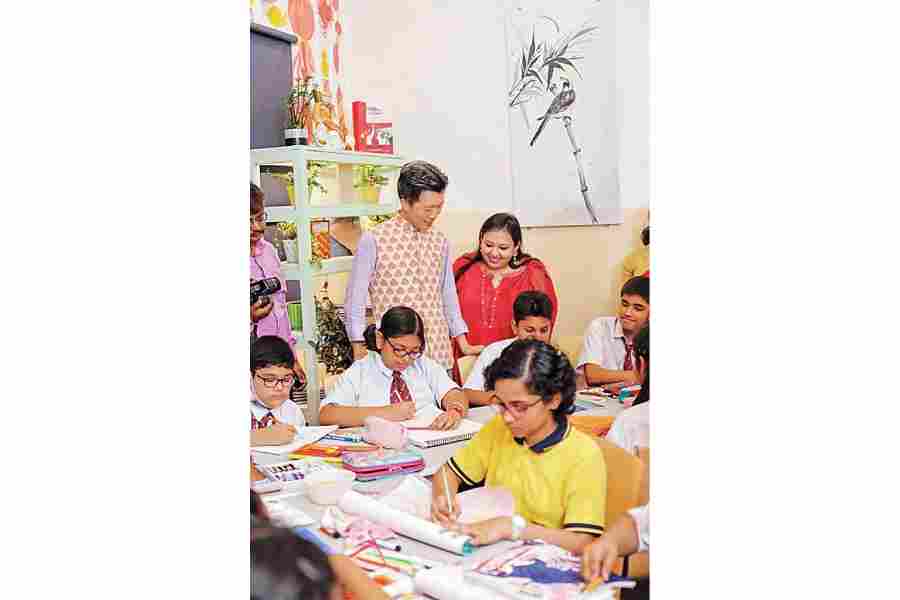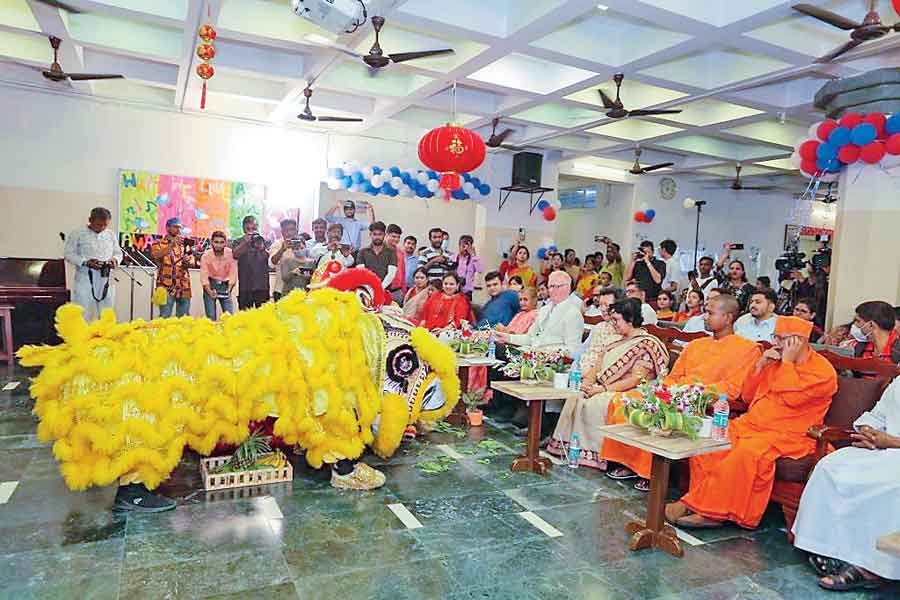St Joan’s School offers Mandarin as third language


Ni hao, zhu ni re lia huan ying!” chirped students of St Joan’s School as Chinese consul general Zha Liyou walked into their campus. What they said meant: “Hello, warm welcome to you!”
The students will soon be speaking much more than just mouthing greetings in Mandarin as the GD Block-based school announced the inauguration of their “Mandarin room”. Mandarin classes had begun in April itself but the formal launch took place on May 8.
Students welcomed the guests with Ganesh vandana and Bharatanatyam. “I believe our foreign delegates enjoyed our dance. I was proud to display our rich Indian culture for them,” said Mehul Chakraborty, a dancer from Class VI. A Chinese team then presented their traditional lion dance. Dressed in red and yellow, the dancers mimicked lions’ movements for good luck.
Globalspeak

The consul general and other dignitaries then went ahead with the inauguration. The Mandarin classroom was adorned with Chinese calligraphy, chimes, Laughing Buddha statues, chopsticks and other items, thereby creating a mini China.
Zha thanked the school authorities for offering Chinese as the optional third language for classes V to VIII (other than Hindi and Bengali). “Chinese is just as important as English to Indians, as neither is their mother tongue. Learning a foreign language requires passion, love and hard work,” he said, adding how it took him four years to master English literature. “In today’s world, it’s important for Hindi, Bengali and Chinese speakers to come together. I wish the programme success.”
Zha expressed the need for more youth in both China and India and to speak each other’s languages and foster stronger ties.
Principal Debjani Ghosh said the school was committed to providing well-rounded education. “In the 21st century our students should be empowered with additional skills. By introducing Chinese for classes V to VIII, we are helping them establish themselves in the modern world,” she said. “I happened to come in touch with the consul general and he helped connect us with a Chinese teacher. After considering aspects like parents’ consent, we introduced the subject as an optional third language from Class V to VIII. If anyone prefers, can pursue further in future.”
Vice principal, Lucia Gupta, also thanked Zha for his support in introducing the language in their school. “This language will prepare students to become world citizens. It will help them integrate with the global economy,” said Gupta.
Learn with music

The newly-appointed Chinese teacher Sreeja Hazra has done her masters from Cheena Bhavana at Visva-Bharati and an advance course from Peking University. “I’m excited to share my love of China with students and am confident they will learn it quickly and easily,” she said. “I usually begin by imparting basic information about the language and incorporate songs to generate interest.”
Hazra had in fact taught the students to sing a Chinese rendition of Tagore’s song Ami chini go chini and a Chinese song Mo Li Hua that captured the essence of the jasmine flower. “When at Peking University, I had also taught Tagore’s Phule phule to college students. They were very interested in the great poet of India,” she said.
There were a number of dignitaries present such as professor David Larbalestier, an Australian who would teach English at the University of Technology, Sydney but who learnt Chinese so he could teach English to students in Shanghai as well. He provided insights into the time and effort required to master foreign languages and presented a comparative study between the English and Chinese.
Also present were Swami Vimalatmanandaji Maharaj from Ramakrishna Math, Yogodyan, Reverend Father Thottam, former vice- principal of St. Lawrence High School and Reverend Sisters Rita and Georgina of St Joseph of Cluny.
Positive response
Students have been learning the language since April and response has been positive, as Soumodip Goswami of Class VI would testify. “I am enjoying learning a new tongue. It’s partly tough, partly easy,” he said.
His father, Sandip Goswami, expressed surprise at his son’s progress. “I am amazed to see how he has managed to learn so many Chinese words in a few days! This is something I myself haven’t been able to achieve even after working for eight years in a Chinese company.”